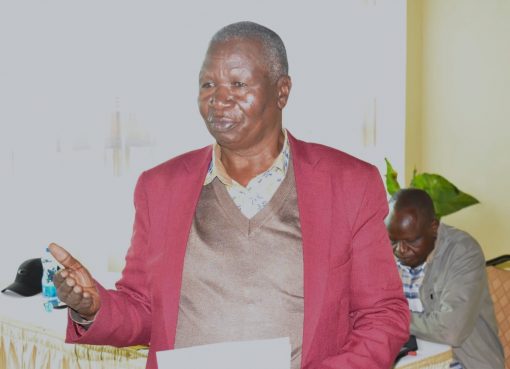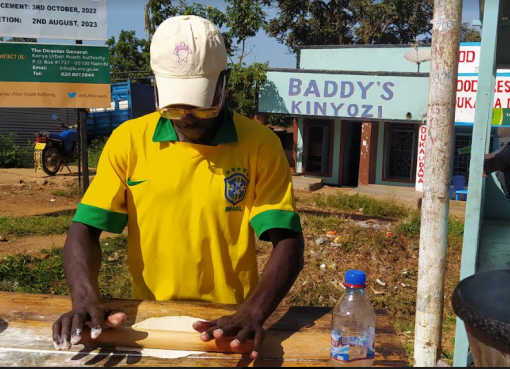Community Health promoters (CHPs) initially called Community Health Volunteers (CHVs) have become an integral part of the country’s health system.
At the grassroots level of the society, they disseminate vital information on nutrition, and hygiene, while championing general disease prevention measures.
By addressing health challenges right from the villages, these health promoters therefore contribute significantly to reducing the burden on the overall healthcare system.
Cognizant of this new pleasant development at the health sector, Kenya News Agency accompanied two Community health promoters in Kimorori Wempa ward, Murang’a south sub-county, as they made their routine home visits to determine the health status of members of selected households.
Elizabeth Muthoni Kamande is in her fourth year as a CHP, while Naomi Njoki Munene is celebrating one year in the community-based service. The two are in charge of 100 households each.
With emergency kits firmly secured on their backs, we embark on the journey at 10.00 am and a few minutes later we are ushered into Samuel Mwangi’s home.
We find the 74-year-old Mwangi and his wife Mary Njoki Mwangi, 74, who is diabetic and also living with high blood pressure, basking under a shade in their compound.
After exchanging the usual warm pleasantries, the CHPs record the clients’ particulars, before embarking on checking their blood sugar levels, weight, and blood pressure.
“We aim at offering basic prevention and care services and as you can see one of our client’s blood pressure is high at 180 and since she is on medication, we advise her not to miss the drugs and to also drink not less than two litres of water daily,” notes Kamande as pricks Mwangi’s finger to check his blood sugar levels as well.
They are also advised to ensure they maintain a healthy lifestyle by avoiding stress, walking regularly, and getting in touch with the CHPs anytime they want to have their blood sugar and blood pressure tested.
At the end of the visit that takes slightly over 45 minutes, the couple thanks the CHPs noting that the visits have made health care accessible because residents now do not have to go all the way to the dispensary to have their essentials taken
“I have lived with diabetes and high blood pressure for many years and accessing dispensary every time used to be both time-consuming and expensive considering my old age, I have also been advised to take a lot of water to manage my condition,” Njoki says.
We made five more home visits, where the health promoters in our team have registered more households and the members present as stipulated, whereas Kamande and Munene promised to visit later for the members who were at work or school.
Worn out and all sweaty owing to the area’s rough terrain, we knock at Mary Njeri Mungai’s homestead at 4.15pm, the last one for the day.
We find the 77-year-old Mungai and her caretaker chatting the evening away as they watch the scorching sun set.
In turns, our CHPs check her blood pressure, which happens out to be high, while her weight also raised some concern and she was promptly advised not to sit for long, but to stay active all the time and walk more.
“I have also realized that the medication she is taking to manage her high blood pressure should be half a tablet as the dosage is high, compared to a full tablet she has been taking and she risks overdosing,” said Munene as she perused the packaging of the patient’s HBP tablets.
It is imperative to also note that CHPs also advise and refer patients to the nearby health dispensaries to ensure they do not skip routine checks for management of their conditions.
In a nutshell, Community Health Promoters provide basic health care education and services as well as helping the country address a myriad of non-communicable diseases.
Living in the areas they serve dubbed Community Health Unit, CHPs are cognizant of the elderly in their areas of jurisdiction, who are in need of constant special care, children in need of Vitamin A tablets and deworming tablets, as well as those people with disabilities that needed to be linked to a health facility.
By Florence Kinyua





